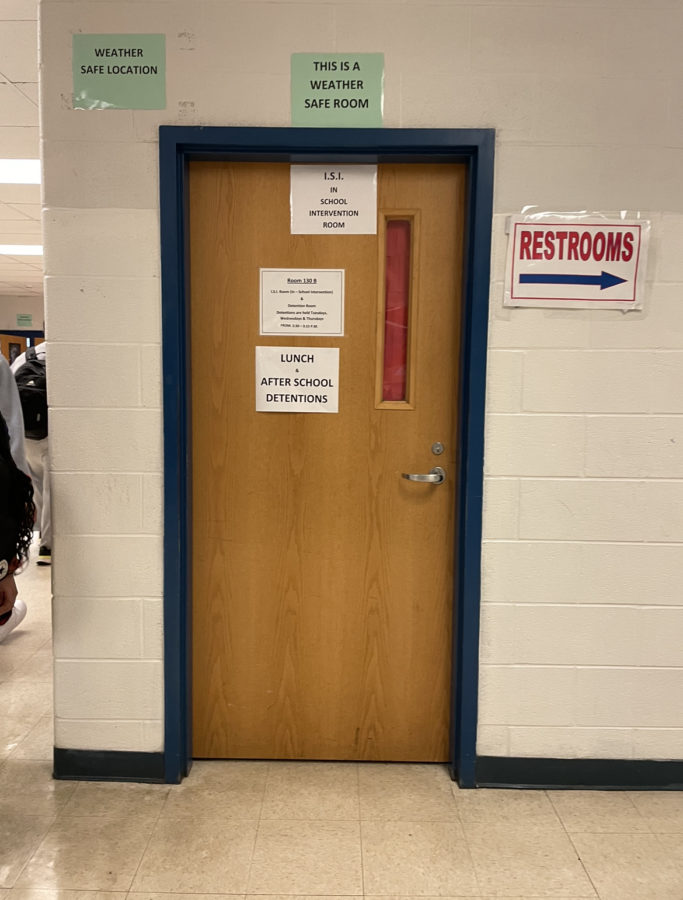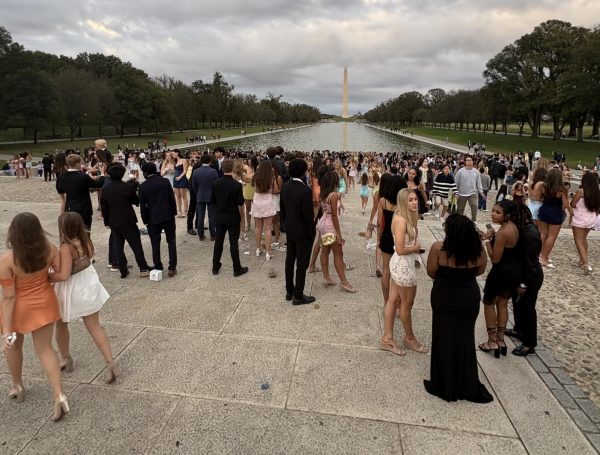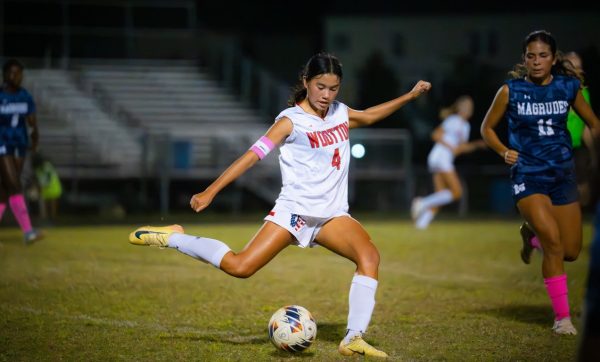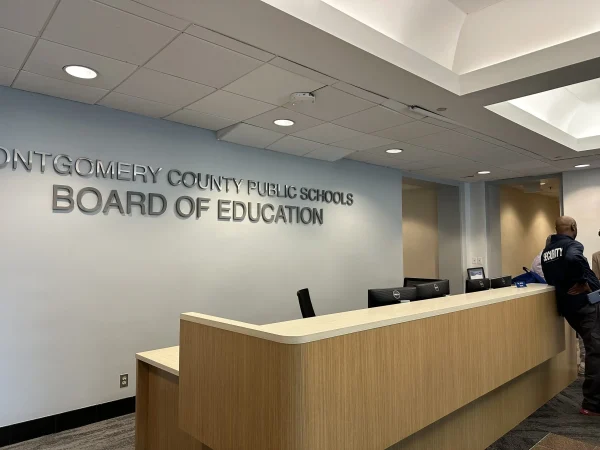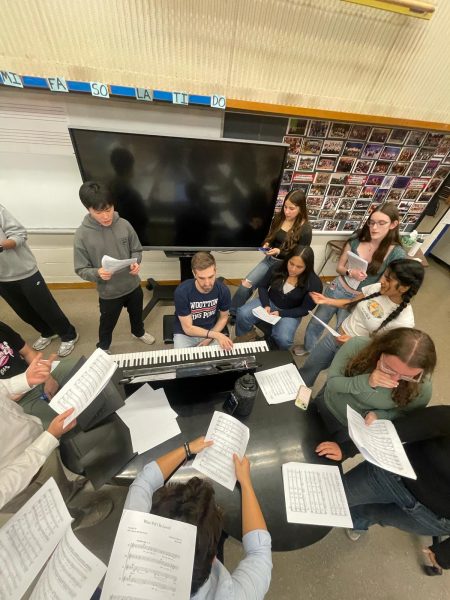In-school intervention is ineffective form of disciplinary action
Students given in-school intervention are placed in room 130B for their punishment.
Across from the security office and next to the Commons is room 130B: a small, narrow space filled with desks, a bookshelf and windowless brick walls with a sign forbidding all use of cellphones. This room is the in-school intervention (I.S.I.) room where students are sent for their punishments.
In-school intervention is a form of disciplinary action that removes students from their regular school schedule and places them, for a certain number of days, in the I.S.I. room. The actions that are required to receive I.S.I. are determined by school administration.
According to MCPS, when a student is in in-school intervention they must be “afforded the opportunity to continue to appropriately progress in the general curriculum, receive instruction commensurate with the program afforded to the student in the regular classroom and participate with peers as they would in their current education program to the extent appropriate.” But how can these punished students, often with lower grades to begin with, “appropriately progress” in school when they are removed from class for days on end?
MCPS claims students facing in-school interventions are able to stay on track in school but that is far from true. In order for a student in in-school intervention to stay caught up, they must ask a security guard to go to each of their teachers and collect the work they are missing. If students do not actively seek the materials they are missing, they could sit in the I.S.I. room for days without doing any work at all. There is no one in the room holding them accountable to be productive.
Once these students do have work to complete, they have zero support or instruction while in I.S.I. The only adult in the room is a security guard and students are forbidden from leaving the room, even for help from a teacher. MCPS cannot claim that in-school intervention allows students to learn the same as if they were in class, while abandoning these students in the I.S.I. room with no education professionals or support.
In-school intervention could be deemed effective if the experience genuinely taught students a lesson and they never ended up back in the I.S.I. room, yet that is often not the case. In-school intervention does not go on a permanent record and colleges are not notified of whether a student has been in I.S.I.. With no permanent consequence, there are students who feel I.S.I. teaches them no lesson at all. “I have had I.S.I. multiple times. It’s extremely boring and I usually just watch videos on my computer. I definitely don’t learn anything from it,” an anonymous junior said.
Ultimately, in-school intervention does not help students. Rather than encourage better behavior, it damages students’ education and increases their chances of acting out again. MCPS must reevaluate their discipline system to ensure students are being lifted up, not left behind.
Your donation will support the student journalists of Thomas S. Wootton High School. Your contribution will allow us to purchase equipment and cover our annual website hosting costs.
Elizabeth is a 2024 graduate.


